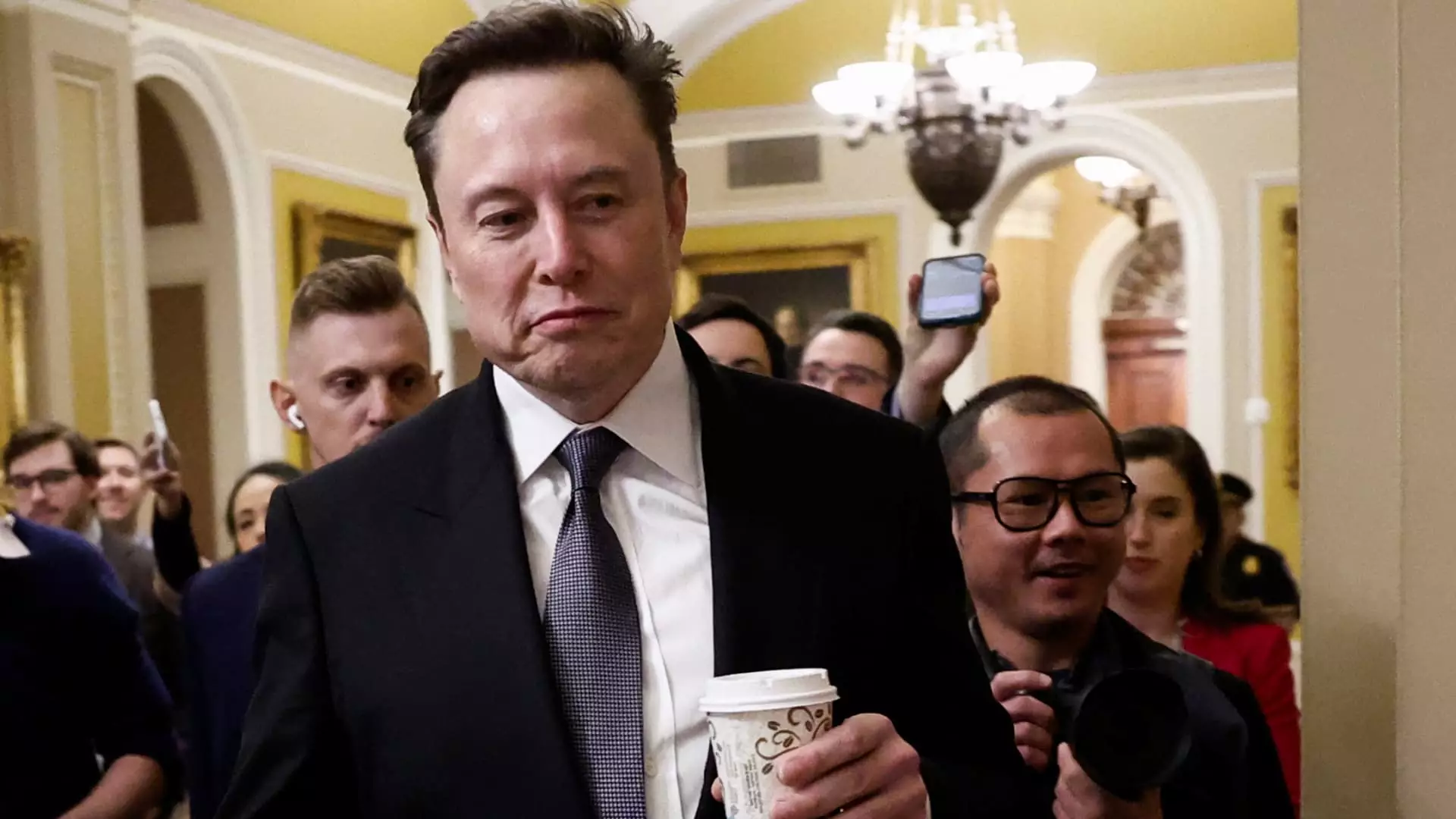The relationship between politics and technology in the United States is increasingly intertwined, particularly when billionaire entrepreneurs like Elon Musk become major players in political narratives. Recently, House Democrats, including Jim McGovern of Massachusetts and Rosa DeLauro of Connecticut, accused their Republican counterparts of succumbing to Musk’s influence, which they assert led to the failure of a crucial bipartisan funding bill aimed at regulating U.S. investments in China. This incident not only underscores the delicate balance of bipartisan cooperation but also highlights the potential implications of a powerful individual’s interests on national policy.
At the heart of the controversy is a stopgap funding bill that managed to pass, thereby averting a government shutdown. However, the original provisions aimed at regulating advanced technologies like artificial intelligence (AI) and quantum computing were stripped away, much to the chagrin of Democrats. McGovern articulated that these provisions would have fortified the U.S. economy and workforce by keeping tech jobs within the nation. The broader implications couldn’t be ignored: without proper oversight, U.S. investments in Chinese technology might erode domestic technological advancement and national security.
The frustration among Democrats crystallizes around Musk, whose companies, particularly Tesla, have substantial operations in China. Tesla’s factory in Shanghai stands out as the sole foreign automobile manufacturing facility operating without a local joint venture, which speaks volumes about Musk’s ambitions in the Chinese market. Additionally, the establishment of a battery plant in proximity to the Shanghai factory reveals not just business acumen but also a strategy deeply embedded in ensuring that relations with the Chinese government remain cordial.
McGovern’s statements suggest a troubling scenario: Musk’s financial success may hinge on appeasing Chinese officials. He notes Musk’s aspirations for an AI data center in China, framing it as a security risk for the U.S. The crux of the argument lies in whether a businessman’s need for profit can and should overshadow national security concerns. Musk’s influence extends beyond electric vehicles and satellites—he has become a figure of immense power that navigates the political landscape in ways that might contravene traditional expectations of corporate responsibility.
The implications escalate further when examining Musk’s involvement with SpaceX. Reports indicate that the company refrained from providing Starlink satellite communications over Taiwan at the request of both Chinese and Russian leadership. The geopolitical stakes grow higher here, especially given Taiwan’s self-governance yet contentious status with China. DeLauro and McGovern’s warnings resonate, suggesting that reliance on figures like Musk could detract from U.S. sovereignty and security.
As U.S. political dynamics shift, Musk’s affiliations grow more pronounced. This situation is exacerbated by his significant financial contributions to the Trump campaign during the 2024 election cycle, amounting to $277 million. His engagement has not been limited to monetary support; he has evolved into an influential advisor to the former president, actively participating in meetings that shape both domestic and foreign policy. The use of social media platforms, particularly the rebranded X (formerly Twitter), has served as a conduit for Musk to influence public opinion and political narratives, further blending the lines between business, technology, and governance.
Notably, Musk’s provocative response to DeLauro by labeling her an “awful creature,” highlights the combative nature of modern political discourse. This interaction not only showcases a personal conflict but also reflects a broader tension between accountability and the unchecked power of wealth in shaping political landscapes.
As the interplay of political motives and corporate interests becomes increasingly complex, it raises essential questions about the future of governance in the age of technology. The critics of Musk’s growing political influence, such as McGovern and DeLauro, warn that ceding control to individual magnates could compromise national interests. The effectiveness of governmental oversight in the face of such private sector power becomes a paramount concern. To navigate this challenging landscape, it is crucial for Congress and the American public to reassess the dynamics at play and advocate for regulatory measures that protect national security and ensure that technological progress benefits society as a whole, rather than a select few.

